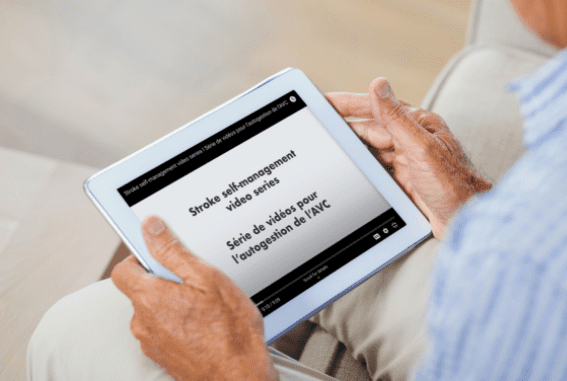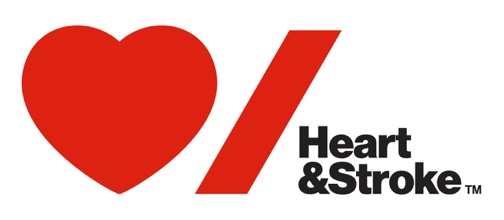

Virtual education sessions address physical, cognitive and psychological challenges
OTTAWA, August 20, 2020 – How do I cope with anxiety after stroke? Why am I always so exhausted? What can I do to get movement back in my arm and hand? Why can’t I remember things? A new 11-episode series of free videos, released today, explores issues faced by people recovering from stroke and aims to provide tools and resources to help.
The stroke recovery series was created over the past three months by clinicians with the Early Supported Discharge (ESD) Team, Calgary Stroke Program/Alberta Health Services, in partnership with Heart & Stroke and the Canadian Partnership for Stroke Recovery (CPSR).
The series delivers short sessions (most are about 10 minutes in length) on topics including memory, anxiety, fatigue, attention, stress, unilateral spatial neglect, upper extremity movement, organization and planning, resilience, leisure, and functional communication.
“The COVID-19 pandemic heightened awareness about the need to provide people living with stroke, their families and caregivers with strategies to manage their recoveries when access to rehabilitation therapy was not always available,” says Katie Lafferty, CEO of the Canadian Partnership for Stroke Recovery. “The goal of these videos – and the accompanying resource sheets – is to empower and educate people about some of the common side effects of stroke and help them take charge of their recovery.”
Videos can be accessed at http://canadianstroke.ca/en/tools-resources/videos
“We recognize that many Canadians do not have access to this type of specialty care, and we were thrilled at the opportunity to help develop content for this self-management education series,” says Lisa Patel, Unit Manager with the Calgary Early Supported Discharge program, Alberta Health Services. “It is our hope that these videos and resources will help empower individuals and their loved-ones in actively driving their own rehabilitation in meaningful ways.”
In 2013, the Public Health Agency of Canada reported that there were 741,800 stroke survivors in Canada. A CPSR-funded study completed at the same time found that more than half of survivors (405,000 people) were living with long-term disability caused by their strokes, a number predicted to double in 20 years.
“These helpful resources support our efforts to provide people with the knowledge to self-manage and continue on their rehabilitation and recovery journey,” says Patrice Lindsay, PhD, Director, Health Systems Change, at Heart & Stroke.
The ESD rehabilitation team at the Université de Montreal is developing French-language versions of all of the videos. Five videos have been completed and posted in French with more to come in the weeks ahead.
“This is an exciting opportunity to reach out to stroke survivors and their caregivers in the community, especially for those who have limited access to outpatient therapies because of where they live,” says Alison Barnfather, Community Coordinator, Calgary Brain Injury Program, Alberta Health Services. “We anticipate the videos will also be used with our own clients in daily therapies as yet another medium to help reinforce stroke recovery concepts and strategies.”
Fred Roessel, a Calgary man living with stroke, agrees: “The videos help me as I can watch all or a specific series at my convenience and as many times as I need to, especially when I want to comprehend the information. I become less frustrated, stay more positive and it keeps me focused on my goals.” And, his wife, Sue, who has also watched the series, says the videos help her “understand what my husband’s stroke rehab is about, how it affects us, how to cope and how to provide support at home in the recovery process.”
For those looking for a community after stroke, or as they care for a loved-one who is recovering, Heart & Stroke’s Facebook communities offer peer support and resources. The Community Connect e-newsletter is another way to receive regular resources, tips and opportunities to participate in research studies. You can sign up for these communities through the Heart & Stroke website.
Contact:
Cathy Campbell, Heart & Stroke Foundation Canadian Partnership for Stroke Recovery
613-852-2303, cathy@canadianstroke.ca
www.canadianstroke.ca



™The heart and / Icon on its own and the heart and / Icon followed by another icon or words are trademarks of the Heart and Stroke Foundation of Canada used under license.
